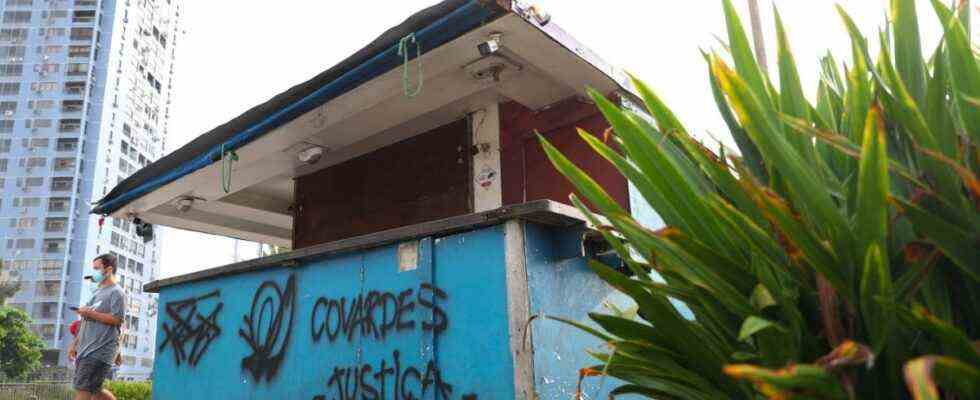It was around 10:30 p.m. on January 24 when a dispute broke out at a beach kiosk in Rio de Janeiro. A seller discussed with an employee, it was probably about the wages for several days of work. Moïse Mugenyi Kabagambe, the young employee, wanted to claim this money that evening, according to his family today. His employer is said to have owed him around 200 real, the equivalent of less than 40 euros, not much, but Kabagambe needed the wages .
At the age of eleven he came to Brazil with his family from the Democratic Republic of the Congo. They all hoped for a better life, or at least for escaping war and violence. Today that turns out to be cruel irony.
Moïse Kabagambe’s mother has told the Rio de Janeiro newspaper Extra that her son has always loved Brazil. After her arrival, he quickly learned Portuguese, found friends, and got a job. “When we arrived here, I thought that all Brazilians are good people,” said the mother. “But now I don’t know if that’s really the case.”
It is not yet clear why the dispute at the kiosk escalated on January 24th. In any case, more men came, at least four, together they hit Kabagambe with clubs and sticks. In the end, the 24-year-old lay lifeless on the ground, Kabagambe died at the scene, and the perpetrators fled.
Afro-Brazilians have worse jobs
Such and similar murders are a sad part of everyday life in Brazil and especially in Rio. On average, a person is killed every ten minutes in South America’s largest country, and the bloodshed hardly attracts any attention, especially when – as in the case of Moïse Kabagambe – a young black man is the victim.
Although a large part of the Brazilian population also has African roots, racism is still widespread. The country has never really looked critically at its past as a slave-owning nation, although more kidnapped Africans went ashore in Rio de Janeiro alone than in any other port in North or South America.
When Brazil was the last country in the western hemisphere to abolish slavery in 1888, an estimated three to five million people had already been brought into the country and the predominantly white elite was now faced with the question of how to deal with the black population. Instead of relying on racial segregation like in the USA or South Africa, Brazil opted for the concept of so-called “racial democracy”: The mixing of indigenous people, blacks and whites should not be prevented, on the contrary, it was encouraged: immigrants from Portugal, Italy , Germany or Spain should help to make the population whiter and more European.
As a result, Brazil presented itself as a happy melting pot: samba, capoeira, carnival! The reality, however, was less rosy: the Afro-Brazilian population still has worse jobs and a lower life expectancy, and mostly black people live in prisons, as well as in the poor settlements. They only come to the better neighborhoods to clean or wash dishes.
It is therefore not entirely unimportant that Moïse Kabagambe was not beaten to death in some favela or poor suburb, but in Barra da Tijuca, a posh residential area with chic shopping malls, glass-enclosed apartment complexes and a kilometer-long beach. And there, outside the kiosk where Kabagambe was murdered, friends and family members began vigils and protests after his death to demand justice. In the end, the case got the attention it otherwise would not have gotten.
Brazil is now discussing deep-seated racism and xenophobia, demonstrations are planned, people show solidarity online. Suddenly the violent death of a young black man is in the main news and his name is on the front page of the major newspapers. A step forward, albeit a small one.
However, the police have now arrested several suspects. The fact that it took her a good week speaks volumes, after all there were witnesses and even video recordings of the crime. There was no lack of clues, but the investigations only got under way with public pressure.
Moïse Kabagambe’s mother is sure:. “They killed my son because he was black. All I want is justice”.

